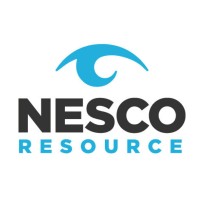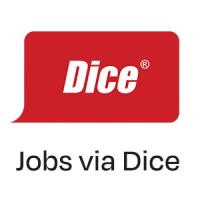

GenAI Developer
⭐ - Featured Role | Apply direct with Data Freelance Hub
This role is a Generative AI Developer/Engineer for a project-based contract with an immediate start, offering competitive pay. Key skills include ComfyUI, Python, multimodal model development, and experience with AR/VR environments. A degree in a related field is required.
🌎 - Country
United States
💱 - Currency
$ USD
-
💰 - Day rate
-
🗓️ - Date discovered
September 11, 2025
🕒 - Project duration
Unknown
-
🏝️ - Location type
Unknown
-
📄 - Contract type
Unknown
-
🔒 - Security clearance
Unknown
-
📍 - Location detailed
Dallas, TX
-
🧠 - Skills detailed
#Python #Batch #GIT #Cloud #Documentation #Version Control #Computer Science #Storytelling #REST API #Deployment #TensorFlow #Automated Testing #Hugging Face #"ETL (Extract #Transform #Load)" #Docker #Transformers #Generative Models #PyTorch #Linux #AI (Artificial Intelligence) #REST (Representational State Transfer) #Scala #Automation #AWS (Amazon Web Services) #Libraries
Role description
Generative AI (GenAI) Developer/Engineer
About Groove Jones:
Groove Jones is a leader in digital innovation, specializing in augmented reality (AR), virtual reality (VR), and immersive interactive media. Our multidisciplinary team delivers cutting-edge solutions for global clients, blending state-of-the-art technology with creative storytelling.
Position Overview:
We are seeking a Generative AI Developer/Engineer with strong experience in designing and deploying scalable generative AI pipelines for image, video, and 3D content. This is a highly technical role focused on implementing, optimizing, and automating multimodal generative models and integrating them into interactive production environments. Proficiency in ComfyUI for workflow management is a key requirement, alongside other foundational skills in model development, prompt engineering, and creative automation.
This is a project-based contract position with immediate start.
Responsibilities:
• Architect, develop, and automate end-to-end generative pipelines for text-to-image, text-to-video, and text-to-3D/scene synthesis using state-of-the-art models (e.g., Stable Diffusion, Sora, DALL-E, diffusion and transformer-based frameworks).
• Implement and optimize Gaussian splatting and point-based rendering pipelines for high-fidelity, interactive 3D scene representation and integration with AR/VR/XR platforms.
• Integrate and extend ComfyUI-based node workflows into broader production toolchains, ensuring robust version control, reproducibility, and pipeline modularity.
• Develop custom nodes, scripts, and tools to interface generative models with creative and real-time engines (Unity / WebGL).
• Prototype and deploy advanced workflows for prompt engineering, multi-model chaining, batch generation, and asset post-processing.
• Apply best practices in model fine-tuning, inference optimization, distributed training, data augmentation, and A/B content testing to improve pipeline performance and output.
• Work with cross-functional teams to translate creative and technical requirements into scalable AI-powered content solutions.
• Maintain thorough documentation of pipeline architecture, dependencies, workflow variants, and key customization for internal and client use.
• Stay up to date with developments in generative AI, visual computing, neural rendering, and creative automation frameworks.
Minimum Qualifications:
• Bachelor’s or Master’s degree in Computer Science, Artificial Intelligence, Computational Imaging, or closely related field.
• Hands-on experience with ComfyUI for workflow management, node customization, and integration of generative AI models.
• Proficiency in Python and libraries including PyTorch, TensorFlow, Hugging Face (Transformers, Diffusers), RunwayML, Sora, Nerfstudio, and Gaussian Splatting toolkits.
• Strong background in multimodal model development (image, video, 3D), prompt engineering, and creative automation.
• Experience developing and deploying generative 3D workflows involving Gaussian splatting, NeRF, photogrammetry, or point cloud rendering.
• Proven ability to work with REST APIs, containerized environments (Docker), and CI/CD pipelines for scalable deployment.
• Experience integrating generative outputs into production creative environments such as Unity or WebGL.
• Experience with cloud services like AWS and proficiency in Linux system administration and command-line operations.
• Advanced understanding of version control (Git), modular code design, automated testing, and performance profiling in production environments.
• Strong analytical and communication skills with the ability to document and share technical processes across a multidisciplinary team.
Generative AI (GenAI) Developer/Engineer
About Groove Jones:
Groove Jones is a leader in digital innovation, specializing in augmented reality (AR), virtual reality (VR), and immersive interactive media. Our multidisciplinary team delivers cutting-edge solutions for global clients, blending state-of-the-art technology with creative storytelling.
Position Overview:
We are seeking a Generative AI Developer/Engineer with strong experience in designing and deploying scalable generative AI pipelines for image, video, and 3D content. This is a highly technical role focused on implementing, optimizing, and automating multimodal generative models and integrating them into interactive production environments. Proficiency in ComfyUI for workflow management is a key requirement, alongside other foundational skills in model development, prompt engineering, and creative automation.
This is a project-based contract position with immediate start.
Responsibilities:
• Architect, develop, and automate end-to-end generative pipelines for text-to-image, text-to-video, and text-to-3D/scene synthesis using state-of-the-art models (e.g., Stable Diffusion, Sora, DALL-E, diffusion and transformer-based frameworks).
• Implement and optimize Gaussian splatting and point-based rendering pipelines for high-fidelity, interactive 3D scene representation and integration with AR/VR/XR platforms.
• Integrate and extend ComfyUI-based node workflows into broader production toolchains, ensuring robust version control, reproducibility, and pipeline modularity.
• Develop custom nodes, scripts, and tools to interface generative models with creative and real-time engines (Unity / WebGL).
• Prototype and deploy advanced workflows for prompt engineering, multi-model chaining, batch generation, and asset post-processing.
• Apply best practices in model fine-tuning, inference optimization, distributed training, data augmentation, and A/B content testing to improve pipeline performance and output.
• Work with cross-functional teams to translate creative and technical requirements into scalable AI-powered content solutions.
• Maintain thorough documentation of pipeline architecture, dependencies, workflow variants, and key customization for internal and client use.
• Stay up to date with developments in generative AI, visual computing, neural rendering, and creative automation frameworks.
Minimum Qualifications:
• Bachelor’s or Master’s degree in Computer Science, Artificial Intelligence, Computational Imaging, or closely related field.
• Hands-on experience with ComfyUI for workflow management, node customization, and integration of generative AI models.
• Proficiency in Python and libraries including PyTorch, TensorFlow, Hugging Face (Transformers, Diffusers), RunwayML, Sora, Nerfstudio, and Gaussian Splatting toolkits.
• Strong background in multimodal model development (image, video, 3D), prompt engineering, and creative automation.
• Experience developing and deploying generative 3D workflows involving Gaussian splatting, NeRF, photogrammetry, or point cloud rendering.
• Proven ability to work with REST APIs, containerized environments (Docker), and CI/CD pipelines for scalable deployment.
• Experience integrating generative outputs into production creative environments such as Unity or WebGL.
• Experience with cloud services like AWS and proficiency in Linux system administration and command-line operations.
• Advanced understanding of version control (Git), modular code design, automated testing, and performance profiling in production environments.
• Strong analytical and communication skills with the ability to document and share technical processes across a multidisciplinary team.






